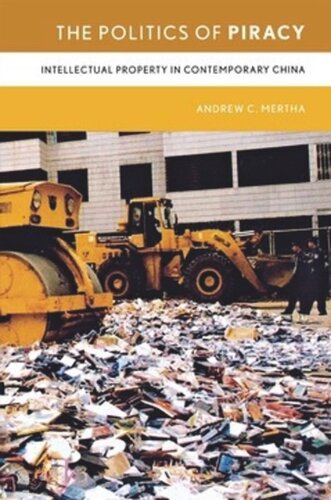

Most ebook files are in PDF format, so you can easily read them using various software such as Foxit Reader or directly on the Google Chrome browser.
Some ebook files are released by publishers in other formats such as .awz, .mobi, .epub, .fb2, etc. You may need to install specific software to read these formats on mobile/PC, such as Calibre.
Please read the tutorial at this link: https://ebookbell.com/faq
We offer FREE conversion to the popular formats you request; however, this may take some time. Therefore, right after payment, please email us, and we will try to provide the service as quickly as possible.
For some exceptional file formats or broken links (if any), please refrain from opening any disputes. Instead, email us first, and we will try to assist within a maximum of 6 hours.
EbookBell Team

5.0
68 reviewsChina is by far the world's leading producer of pirated goods—from films and books to clothing, from consumer electronics to aircraft parts. As China becomes a full participant in the international economy, its inability to enforce intellectual property rights is coming under escalating international scrutiny. What is the impact, Andrew C. Mertha asks, of external pressure on China's enforcement of intellectual property? The conventional wisdom sees a simple correlation between greater pressure and better domestic compliance with international norms and declared national policy. Mertha's research tells a different story: external pressure may lead to formal agreements in Beijing, resulting in new laws and official regulations, but it is China's complex network of bureaucracies that decides actual policy and enforcement. The structure of the administrative apparatus that is supposed to protect intellectual property rights makes it possible to track variation in the effects of external pressure for different kinds of intellectual property.Mertha shows that while the sustained pressure of state-to-state negotiations has shaped China's patent and copyright laws, it has had little direct impact on the enforcement of those laws. By contrast, sustained pressure from inside China, on the part of foreign trademark-owners and private investigation companies in their employ, provides a far greater rate of trademark enforcement and spurs action from anti-counterfeiting agencies.